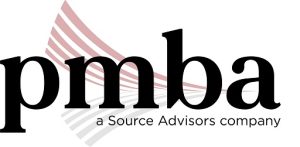What Are the General Items You Look for to Get Refunds?
Many RSUTA firms conduct a targeted review based on what industry a company operates in, but that is not how you should conduct a RSUTA. You should review all of the company’s purchases, and based on what areas the company has the largest portion of its spend, you should review the tax law to determine if there is an applicable exemption.

For example, many capital improvement vendors charge sales tax on an invoice for installation that permanently affixes equipment to real property or an HVAC invoice for work that adds to the value of a property even though these projects constitute a capital improvement under NYS Pub 862.
For more information on capital improvements, check out our article on The Top 3 Indirect Tax Challenges for Real Estate Companies.
Promotional Material Vendors
Typically, states use the sourcing laws to determine how transactions should be taxed, allowing for purchases to be taxed based on the location of their final use. However, most vendors incorrectly tax invoices based on where they ship their goods to, rather than their final destination for use.
For Example, ABC Press Inc charged sales tax on promotional materials shipped to a client in New York State; the promotional materials were subsequently shipped out of New York State to other locations outside of New York State for final use. Because of New York State’s sourcing law, the final use of the promotional materials was not in New York State and therefore, the tax should not have been charged on the invoice.
Will Submitting a Refund Claim Trigger an Audit?
In most cases, the refund claim will not trigger a sales tax audit. However, as expected, the refund claim will be reviewed in detail by the taxing authority. The amount of supporting documentation requested will vary from auditor to auditor.
Can the Refund Be Used to Offset a Current Audit?
Yes, refunds can be used to offset audit assessments. In addition to reducing the liability imposed, the offset lowers the amount on which penalties and interest are imposed, resulting in a significantly lower assessment. In some cases, the refund amount is larger than the audit liability amount resulting in a net refund for the company.
Can We Receive a Refund Directly From the Vendor?
Yes, you can, but vendors are not required to give a refund directly to the company. Even if the vendor is not going to give the company the refund in some states (i.e. Georgia) you are required to reach out to the vendor before you can reach out to the state to request a refund.
Can We Request to No Longer Be Taxed by This Vendor?
Yes. If the reoccurring purchases from a vendor are deemed to be “exempt” then an exemption certificate can be furnished to the vendor for future transactions.
How often should we complete this analysis?
A RSUTA should be completed every two to three years.
Related Resources
-
GuidesLearn More

-
FAQsLearn More

-
GuidesLearn More


